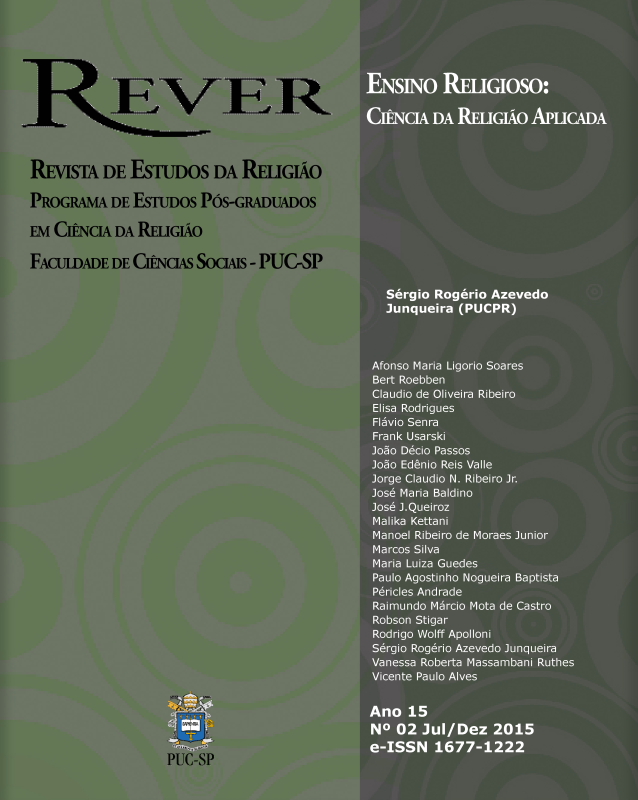Religious Studies and Religious Education: the Historical Challenge of Teacher Training in an Area of Knowledge
Keywords:
Teacher training, Religious Studies, Education, Religious research, Religious EducationAbstract
Religious teaching went back to a Public Hearing at the Brazilian Supreme Court in June 2015 on the constitutionality of Article 33 of Law 9394/96 and Article 11 of Decree 7107/10. There was an important discussion on religious teaching in public schools and secularity, shedding light on the problems and challenges of the subject. Referring to this case, the present article reflects on teacher training for Religious Studies and its relationship with Religious Studies. It reviews parts of the history of Religious Studies in Brazil, data on research in the field and on Religious Education, and discusses perspectives, prospects and academic context for teacher training. It stresses the groundbreaking experience of the Federal University of Juiz de Fora (UFJF), whose Religious Studies Department was founded at the late 1960s and early 1970s, and whose the first undergraduate course in that field started to operate in 1976. Due to internal injunctions at the university and by the local Catholic leaders, the course was closed, returning only in 2011, as the second undergraduate course in Religious Studies after the one at the Federal University of Paraíba (UFPB), recognized by the Ministry of Education/INEP. In addition to these historical data, including on graduate and post-graduate studies and research groups and lines, the article reflects on the role, advantages and limitations of Religious Studies for the teacher training of Religious Education.
Metrics
Downloads
Published
How to Cite
Issue
Section
License
Authors who publish in this journal agree with the following terms:- Authors retain copyright, but grant the journal the right of first publication, with the work simultaneously licensed under the Creative Commons BY-NC License.
- Authors are authorized to assume additional contracts separately, for non-exclusive distribution of the work published in this journal (e.g., publishing in an institutional repository or as a book chapter), as long as with acknowledgment of authorship and first publication in this journal.


